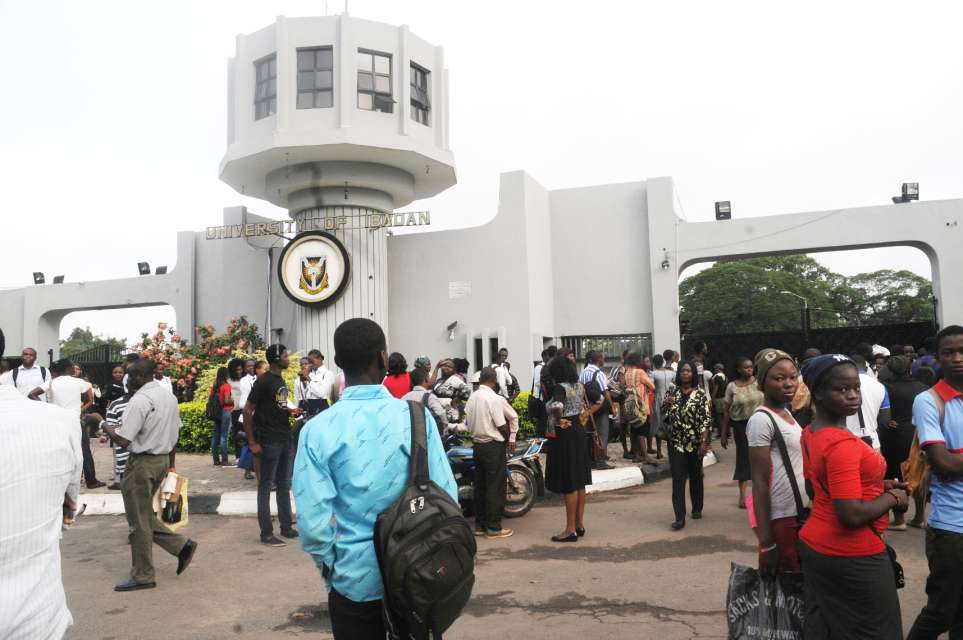EDUCATION
GIS software changes learning, COVID-19 vaccination in UI – Experts

The use of Geographic Information Systems (GIS) software has changed the learning experience at the University of Ibadan and the deployment of COVID-19 vaccines, stakeholders have said.
The Director, University Health Service (UHS), Dr Ronke Ajav, said in Ibadan on Monday, that the software simplified what would have been a cumbersome process of grouping the university community into clusters.
She stated that instead of having to do things manually, technology was deployed, which made the process easier including monitoring and surveillance.
Ajav said that the GIS software was a donation from Environmental Systems Research Institute (ESRI) San Diego, USA and it helped in geographic clustering and evaluation of locations for faculty health checks and vaccination.
“We set up ESRI GIS digital Apps and platform for data entry, updates, display and Analysis. We also trained doctors and health officers to enter and update data.
“This is ongoing and the UHS is using it for ongoing: Registration of Dean/Director/HOD for the exercise; Vaccination and health check and Student medical Examination,” she said.
The Chairman of Geo-Hackathon Committee, Dr Ronke Sakpere, said that students had benefited from the the yearly competition tagged “Geo-Hackathon”, carved out of geography meaning the environment and hackathon means like a race, a marathon race.
“All together it means a series of competitions that revolves around the environment. Finding solutions to issues around the environment.
“Currently we have had two series in 2019 and 2020. The theme for the 2020 was on Ibadan Urban Resilience held in collaboration with IUFMP which seeks to address flooding in the city of Ibadan.
“We had over 50 submissions across various categories: Research, Project and Tell your Story out of which nine emerged top in each of the categories.
“After the award ceremony we continued to work with those that emerged top and those whose solutions seem promising alongside our industry partners that are in Lagos in the technology industry.
“We will continue to work with our partners to further improve the solutions that have been conceived. We call this period incubation period whereby we continue to work on their solutions so that it can meet industry standards,” she said.
Sakpere stated that the solutions have being pitched to different organisations, stakeholders and even the World Bank.
“We are looking for opportunities for resources, funds that can help to take these incubated solutions into something tangible,” she noted.
Also, Department of Agronomy Specialisation in Soil Survey and Land Use Planning, UI, Dr Julius Orimoloye, said that the software had been very helpful in several ways for students in his department.
“Before now, getting the license has been very difficult because of the cost. But now that we have the software it is easy for them. They are already getting used to it to solve geo-spatial problems and technicalities. It has been a success story.
“In my field we do what we call land sustainability evaluation. We use multi criteria parameters to arrive at the suitability of soil for particular use either for engineering purposes or agriculture or other purposes.
“We have deployed the use of the software for both our studies and some consultancy services to arrive at a land sustainability map without stress.
“The students are getting more accustomed to the use of the software,” he said.
Orimoloye said that he knew that there were several possibilities still needed to explore with the software.
“It is a voyage of discovery on every occasion and students are even coming up with some ideas,” he noted.
Mr Kolawole Fasola, The Chief Industrial Coordinator of the UI, Industrial Training Coordinating Centre said GIS, has been increasing students chances of industry absorption.
“I can confirm that the software given to us by ESRI has really assisted our students even in job listing.
“There are lecturers who have seen the importance of the software and their development.
”Everybody once thought GIS was only for geography but it has been discovered that GIS is applicable to all aspects of human endeavour.
“It has enhanced the job placement of our students,” Fasola said.
According to him, as an industrial training coordinator, UI, when employers request for the placement of the students and we also tell them that they have the knowledge about GIS, it has improved the way employers assess the students for either three or six months placement exercises.
He noted the challenge of internet connectivity which affected the use of the software.
“Getting uninterrupted internet access is difficult within the university community, now imagine the individuals who subscribed to low band internet service providers through their phones.
“It would have been better if we had good internet access and the university’s management is work on this,” Fasola said.
In her stewardship report, Prof Olanike Adeyemo, the immediate past Deputy Vice Chancellor, Research, Innovation and Strategic Partnership, UI, said that one of her modest achievements was the deployment of GIS software.
“ArcGIS software Deployment Trainings anchored on the ESRI grant, which consists of lots of GIS software and online education resources for location intelligence.
“These trainings are intended to optimize the usage of the ESRI donation by actively encouraging students and lecturers of the University to adopt the GIS technology for solving problems in the society,” she said.




 Davido's Net Worth & Lifestyle
Davido's Net Worth & Lifestyle 
